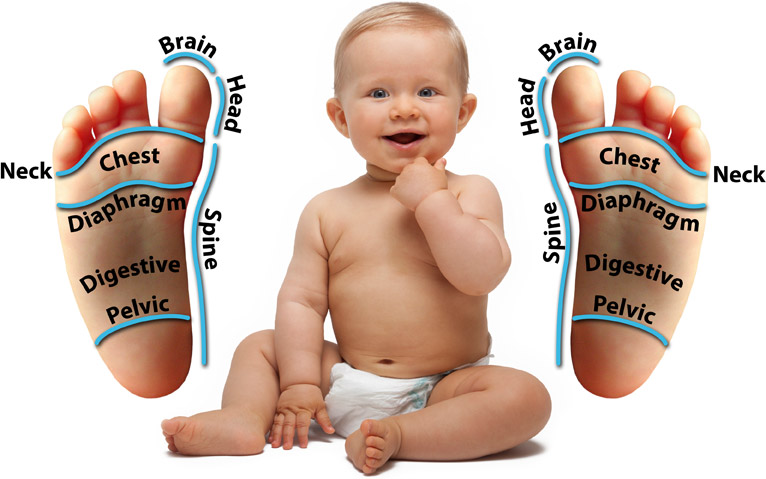what are the reflexesin newborn?
ass="separator" style="clear: both; text-align: center;">
Newborn-Reflexes
 |
| Image shows the newborn reflex |
What reflexes should be present in a newborn?
Reflexes are involuntary movements or actions. Some movements are
spontaneous, occurring as part of the baby's usual activity. These are
responses to certain actions. Reflexes help identify normal brain and
nerve activity. Some reflexes occur only in specific periods of
development. The following are some of the normal reflexes seen in
newborn babies:
-
Rooting reflex. This reflex begins when the corner of the baby's
mouth is stroked or touched. The baby will turn his or her head and open
his or her mouth to follow and "root" in the direction of the stroking.
This helps the baby find the breast or bottle to begin feeding.
-
Suck reflex. Rooting helps the baby become ready to suck. When
the roof of the baby's mouth is touched, the baby will begin to suck.
This reflex does not begin until about the 32nd week of pregnancy and is
not fully developed until about 36 weeks. Premature babies may have a
weak or immature sucking ability because of this. Babies also have a
hand-to-mouth reflex that goes with rooting and sucking and may suck on
fingers or hands.
-
Moro reflex. The Moro reflex is often called a startle reflex
because it usually occurs when a baby is startled by a loud sound or
movement. In response to the sound, the baby throws back his or her
head, extends out the arms and legs, cries, then pulls the arms and legs
back in. A baby's own cry can startle him or her and trigger this
reflex. This reflex lasts about 5 to 6 months.
-
Tonic neck reflex. When a baby's head is turned to one side, the
arm on that side stretches out and the opposite arm bends up at the
elbow. This is often called the "fencing" position. The tonic neck
reflex lasts about 6 to 7 months.
-
Grasp reflex. Stroking the palm of a baby's hand causes the baby
to close his or her fingers in a grasp. The grasp reflex lasts until
about 5 to 6 months of age.
-
Babinski reflex. When the sole of the foot is firmly stroked, the
big toe bends back toward the top of the foot and the other toes fan
out. This is a normal reflex up to about 2 years of age.
-
Step reflex. This reflex is also called the walking or dance
reflex because a baby appears to take steps or dance when held upright
with his or her feet touching a solid surface.

Thanks







Post a Comment